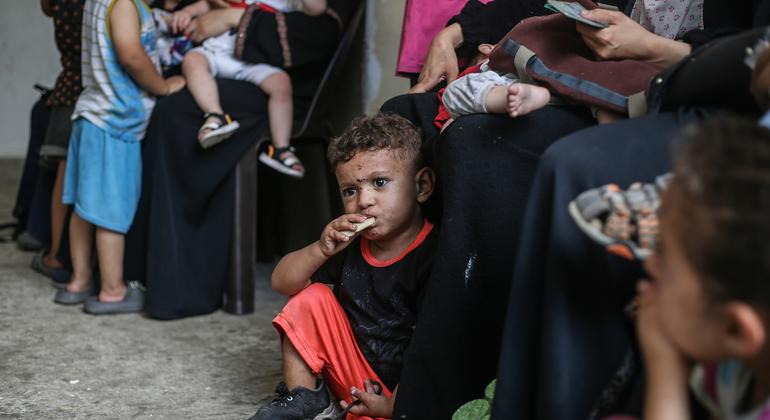Tanzania’s climate future will not be decided in boardrooms or by short-term projects – it will be shaped by the young leaders already driving change in their communities.
Since 2023, Climate KIC has partnered with seven youth organisations, committing to multi-year support that provides education, skills development, and leadership training. This approach rejects the quick-win mentality, recognising instead that sustainable transformation demands patient capital and long-term partnerships. What’s needed now is to scale this vision: creating national-level funding streams, simplifying access, and rewriting policies so that youth- and women-led initiatives are no longer sidelined, but formally recognised as the foundation of climate governance.
The NGO filling the gaps
Tanzania’s age structure is both a reality and a call to action. With the majority of our population under 30, everything we do at ECCT is grounded in the understanding that youth are not a side note, they are the centre of our climate future
Lucky Michael, Founder and Executive Director of the Environmental Conversation Community of Tanzania
At Environmental Conservation Community of Tanzania (ECCT), programmes like EcoWear are proving that innovation doesn’t require wealth, just vision. Young women known as “Eco Warriors” transform textile waste into sustainable fashion, using creativity as a tool for both climate advocacy and economic resilience. Despite limited funding and access to formal markets, they’ve built local networks, leveraged social media for outreach, and partnered with community groups to extend their reach.
Laurel Kivuyo, environmental specialist and co-founder of Climate Hub Tanzania, was raised as a Maasai girl in Arusha and has turned inherited resilience into policy action. Climate Hub Tanzania aims to fuse traditional knowledge with policy and innovation while giving youth and women platforms to drive change. The organisation bridges activism and policy, moving from awareness campaigns to influencing national climate strategies. Through their climate literacy programme, young leaders like Naomi Koinase are integrating indigenous knowledge with environmental conservation, inspiring a new generation of Maasai girls to become climate leaders.
Vicent Laurent, Executive Director of YAWE (Youth and Women Emancipation), focuses on the intersection of disadvantages young women face. YAWE shifts paradigms by training young leaders to connect climate science with daily life, building confidence and entrepreneurial literacy. The organisation recognises that meaningful change requires both individual capacity-building and systemic transformation.
Youth and women at climate core
In Tanzania, youth aren’t a niche cohort, they’re the majority: seventy-seven per cent of Tanzania’s population is under the age of 35. And according to the Notre Dame Global Adaptation Initiative (ND-GAIN) Index Tanzania is one of the countries that is most vulnerable to climate change (ranked 147th out of 187 total countries). Severe and frequent droughts and floods are major threats to Tanzanian economic strength and food security because rain-fed agriculture makes up a large portion of the country’s income. Tanzania’s National Climate Change Strategy (2021–2026) recognises the urgency of adaptation, with objectives on agriculture, water, and energy. Yet, resilience efforts are still in their infancy, and the strategy gives little detail on how youth and women will be included in implementation.
This gap between policy intention and demographic reality represents a significant disconnect. While climate change disproportionately affects women and youth, formal decision-making structures often exclude them. Women shoulder 80 per cent of food production globally, perform nearly three times more unpaid care work than men, and rely heavily on natural resources that climate change is rapidly depleting. When scarcity deepens, so does their workload. And, most distressingly, nearly 80 per cent of those displaced by climate-related disasters are women and girls. These realities are rooted in structural inequalities that deny women equal rights to land, fair wages, social protections, and decision-making power. This happens especially in contexts where the majority work in the informal sector without legal safeguards. Climate action without a gender lens ignores this truth, and risks reinforcing the very inequities it must dismantle.
This could be a missed opportunity because even though women and youth are the most vulnerable, they are powerful agents of change in innovation and climate resilience.
The systemic barriers
The systemic challenges these leaders face are significant. Limited access to capital tops the list, followed by social norms that undervalue women’s leadership and policy gaps that fail to prioritise youth- and women-led initiatives. For young women, these challenges compound with gendered expectations around caregiving and mobility restrictions.
These barriers create cycles where opportunities, resources, and influence remain concentrated among established groups, while those most affected by climate change (and often the most innovative in responding to it) struggle for recognition and support.
The NGOs in action
Despite these obstacles, tangible change is happening. ECCT’s She Leads Green programme has alumni turning rooftops into urban gardens and launching grassroots waste management efforts that directly respond to local environmental needs. Through Climate Hub Tanzania’s network, Edward Jacob founded the Kilimo Sustainable Initiative, applying climate-smart farming techniques to help smallholder farmers improve food security while adapting to changing conditions.
In Shinyanga, YAWE’s trained leaders now hold seats on natural resource governance committees: spaces where youth voices were once unheard. Through climate education, environmental governance training, and grassroots organising, they’ve moved from exclusion to invitation. They’re now called upon to speak at community planning meetings, where they raise awareness about climate risks and advocate for sustainable land use.
Another Climate Hub Tanzania graduate, Naomi Koinase, a young Maasai woman from Arusha, now leads the Omom Maasai Community Foundation, integrating indigenous knowledge with environmental conservation. These aren’t just inspiring stories, they’re strategic demonstrations of what happens when youth and women gain access to knowledge, tools, and support systems.








